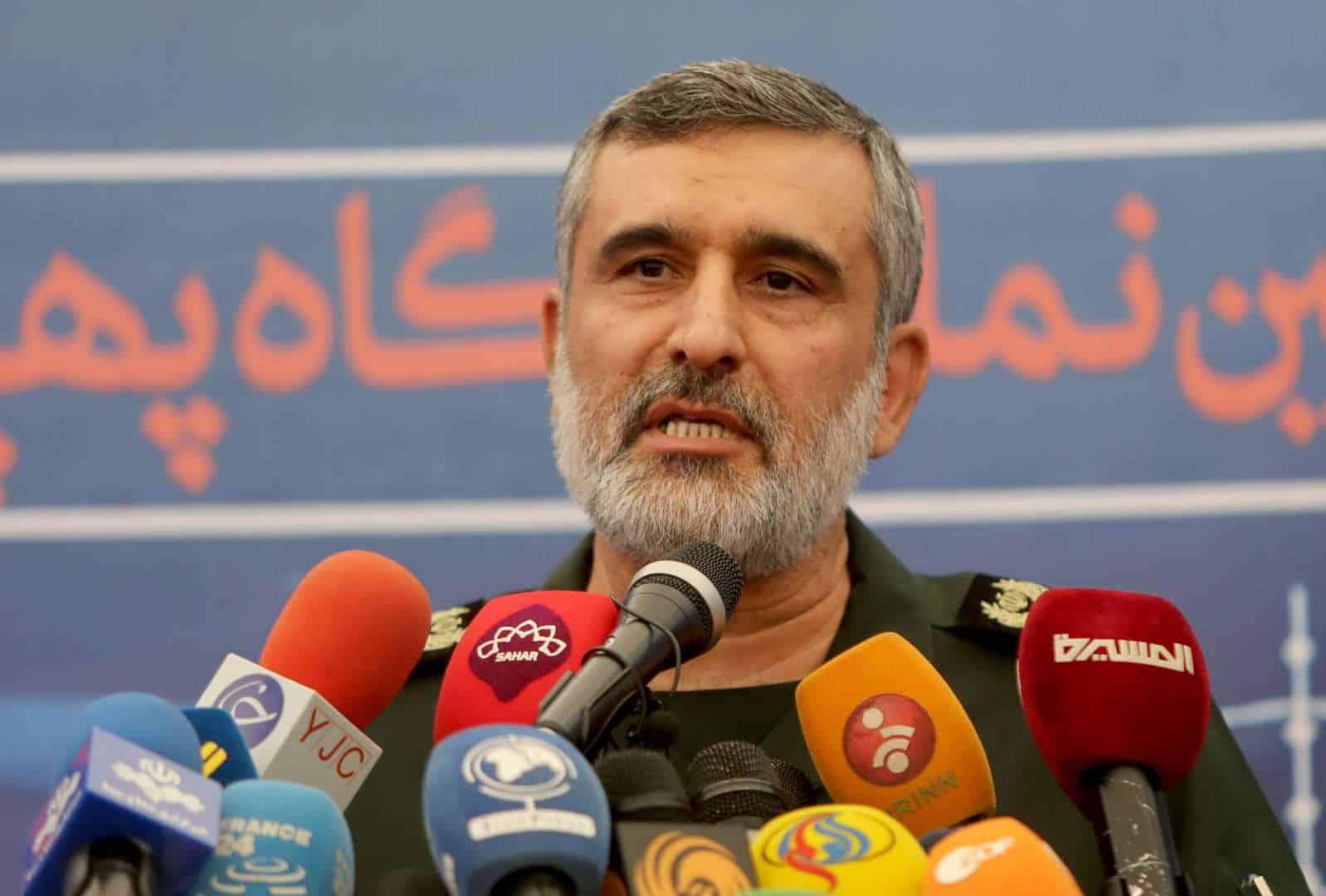IRAN AIR COMMANDER CLAIMS FORCES WERE READY TO HIT 400 U.S. TARGETS IF WASHINGTON RETALIATED AFTER JANUARY ROCKET ATTACK

The commander of Iran's Islamic Revolutionary Guards Corps (IRGC) air arm has claimed his troops were ready to attack hundreds of additional American targets if January's limited exchange of fire escalated into a wider conflict.
IRGC Aerospace Force Brigadier General Amir Ali Hajizadeh made the comments Friday when talking to reporters about the Corps' successful satellite launch earlier this week, which comes as Washington and Tehran exchange fresh military threats in the Persian Gulf.
Iran and the U.S. appeared close to war in January after President Donald Trump ordered the assassination of Major General Qassem Soleimani.
The drone strike that killed Soleimani outside Baghdad International Airport in Iraq was the culmination of weeks of tensions between the U.S. and Iran, during which Iran-backed Iraqi militias killed an American at an Iraqi base in the northern city of Kirkuk and took part in the storming of the U.S. Embassy in Baghdad.Ads by scrollerads.com
Soleimani was the commander of the IRGC's clandestine Quds Force and widely considered the second -most powerful figure within the regime. He was responsible for Iran's foreign military operations and directing a host of proxy militias across the Middle East.
In response, Iran fired ballistic missiles at two Iraqi military bases hosting U.S. troops. At the Ayn al-Assad air base in the west of the country the missiles wounded more than 100 American troops, though this was not immediately announced.
The White House chose not to retaliate after the strikes, though Trump had previously threatened to attack 52 Iranian targets—possibly including cultural sites, which would constitute a war crime—if Iran struck back against Americans.
Hajizadeh said Friday that IRGC troops were ready for a wider assault if the U.S. responded to the Ayn al-Assad bombardment.
He suggested that by killing Soleimani, the Trump administration "wanted to show that they killed a symbol of resistance, and they were sure that Iran would not respond to their attack."
Hajizadeh explained that Iranian officials thought the U.S. would respond to the Ayn al-Assad attack within 20 minutes, "so we were ready to attack 400 American targets." The commander gave no further information about what the targets were, nor how Iranian troops intended to attack them.
IRGC forces were on high alert in the hours after the attack, and subsequently shot down a civilian airliner outside Tehran. All 176 people aboard Ukraine International Airlines Flight 752 were killed in the incident.
The standoff between Iran and the U.S. has been largely overshadowed by the coronavirus pandemic in recent months. But over the past week tensions have risen after IRGC fast-attack boats intercepted and surrounded American warships in the Persian Gulf. The incident prompted Trump to order the Navy to "shoot down and destroy" any Iranian boats harassing American vessels.
IRGC commander Hossein Salami then issued his own threat to attack any American "terrorist" forces in the Gulf.
Trump's threat came hours after the IRGC successfully launched a military satellite into orbit for the first time. The success could help advance Iran's intercontinental ballistic missile research program—a key grievance for the U.S. and one of the reasons Trump withdrew from the Joint Comprehensive Plan of Action in 2018—though Tehran said the satellite launch had nothing to do with its ICBM efforts.
Discussing the satellite launch, Hajizadeh told reporters: "Today, gaining access to space and using it is not a choice. It is an inevitable necessity and we must find our place in space."
Photo: © ATTA KENARE/AFP via Getty Images/Getty Brigadier General Amir Ali Hajizadeh speaks during the unveiling of an exhibition in Tehran, Iran on September 21, 2019.











